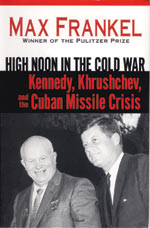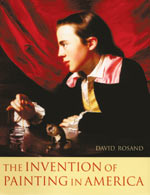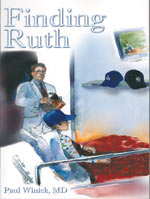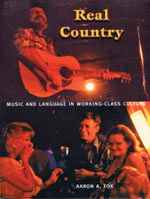|
|
 |
 |
 |
 |
|
BOOKSHELF[Editor’s note: The November issue erroneously listed the class year of Joel Pfister ’73, author of Individuality Incorporated: Indians and the Multicultural Modern.] Donald Holden Watercolors introduction by Richard J. Boyle ’51 and commentary by Donald Holden ’51. An inspiring collection of watercolor paintings that portray beautiful North American landscapes (Ruder Finn Press, $24.95). World-Systems Analysis by Immanuel Wallerstein ’51. An academic introduction to studying history and development based on the structures of world systems. Wallerstein gives a concise outline and description of his method while defining its purpose and future in social sciences (Duke University Press, $16.95).
High Noon in the Cold War: Kennedy, Khrushchev, and the Cuban Missile Crisis by Max Frankel ’52. The Pulitzer Prize-winning author provides new insight into the struggle that almost brought about a nuclear war. Frankel examines the actions and policies of Kennedy and Khrushchev and corrects the common misconceptions surrounding the issue (Ballantine Books, $23.95). Making Our Schools More Effective: What Matters and What Works by Martin Patchen Ph.D. ’53. This book focuses on making schools as effective as possible and examines various aspects of curriculum, graduation rates and testing as well as issues such as vouchers and the minority “achievement gap” (Charles C. Thomas, $49.95). The Cry of the Sirens by William Kronick ’55. The luck of a famous Hollywood film director runs out as unfortunate circumstances leave him broke and alone. He finds redemption when he is reunited with his oldest friend from college. Now, his only struggle is trying to understand why he killed him (Author House, $25).
The Invention of Painting in America by David Rosand ’59, Meyer Schapiro Professor of Art History. This study of early American painting shows how painters invented ideas, styles and traditions. Citing examples by Copley, Homer and Pollack, Rosand defines the “American” characteristics of these paintings and their influence on contemporary art (Columbia University Press, $29.50).
Finding Ruth by Paul Winick M.D. ’59. A young boy, plagued by guilt after his mother’s death, tries to find forgiveness in the medical field. An encounter with a terminally ill 11-year-old ignites his passion for pediatrics (Author House, $14.95). Sophokles: Philoktetes translated by Seth L. Schein ’63. This modern translation of Sophocles’ tragedy offers a scholarly yet readable text that restores the original Greek structure. The introduction, notes and interpretive essay offer a comprehensive understanding of this classic (Focus Publishing, $10.95). Minutes of Coroners Proceedings: City and County of New York, John Burnet, Coroner, 1748–1758 edited by Francis J. Sypher Jr. ’63. A historical glimpse into recorded coroners’ proceedings from the time when New York was a mercantilist port city reveals a dangerous urban center where unnatural, and often violent, deaths were common (New York Genealogical & Biographical Society, $27.50). Patents in the Knowledge-Based Economy edited by Stephen A. Merril ’65 and Wesley M. Cohen. An educational collection of works that describe the patent system in terms of quality and litigation of patents. The compilation also contains a section that focuses on software and biotechnology patents (National Academic Press, $67.50). Running Through Fire: How I Survived the Holocaust by Zosia Goldberg as told to Hilton Obenzinger ’69, with an introduction by Paul Auster ’69. Goldberg, a Jew who lived in the Warsaw Ghetto, embarked on a dangerous escape and found help from unlikely sources (Mercury House, $15.95). a*hole by Hilton Obenzinger ’69. This experimental novel delicately intertwines the lives of a female film critic, a boy sinking into the earth, a crazy postal man, a nostalgic father, a lucky archaeologist and a detective working the most important case of his career (Soft Skull Press, $11.95). Kuhn vs. Popper: the Struggle for the Soul of Science by Steve Fuller ’79. Fuller explores the effects of the infamous debate between Thomas Kuhn, who held that science was just another human activity, and Karl Popper, who believed in the legitimacy and impact of scientific discoveries, and how these views play into ongoing discourse on the development of scientific inquiry (Columbia University Press, $24.50). The End of a Natural Monopoly: Deregulation and Competition in the Electric Power Industry edited by Peter Z. Grossman ’70 and Daniel H. Cole. This collection of essays discusses the impact of technology and deregulation on the traditionally monopolistic practices of the electric power industry (Elsevier Science, $95). German Literary Culture at the Zero Hour by Stephen Brockmann ’82. In analyzing the literary works of German intellectuals following World War II, Brockman examines the conflicts of a nation coping with defeat, destruction, political division and war crimes (Camden House, $75). Explicit Content by Black Artemis ’90. This riveting debut novel — written by Sofia Quintero ’90 under a pseudonym — focuses on two women trying to reach stardom in the hip-hop music industry. Friendship quickly turns to rivalry as one is lured away by promises of solo stardom. As they struggle to be first to release an album, it threatens not only their friendship, but also one woman’s life (New American Library, $12.95).
It’s Just a Plant by Ricardo Cortes ’95. This educational, yet provocative, children’s book about marijuana offers unbiased information, in a comprehensible format, on the characteristics, dangers and benefits of marijuana and is useful for parents or educators (Magic Propaganda Mill, $17.95).
Real Country: Music and Language in Working-Class Culture by Aaron A. Fox, associate professor of music and director, Center for Ethnomusicology. Through a glimpse into a rural working-class town in Texas, this book examines how country music not only is entertainment for the community but also is a way of life (Duke University Press, $22.95). Changing the Subject: How the Women of Columbia Shaped the Way We Think About Sex and Politics by Rosalind Rosenberg, Ann Whitney Olin Professor of History at Barnard College. Women began pressing for admittance to Columbia University following the Civil War, resulting in the establishment of Barnard College 20 years later. In subsequent years, women have gained advanced degrees and faculty positions. Rosenberg examines the local history in the context of national feminist movements (Columbia University Press, $29.50). Laura Butchy ’04 SOA,
|
|
||||||||||||||||||||||||||||||||||||||||||||||||||||||||||||||||||||||||||||||||||||




